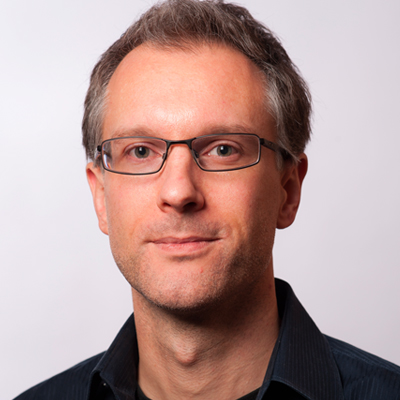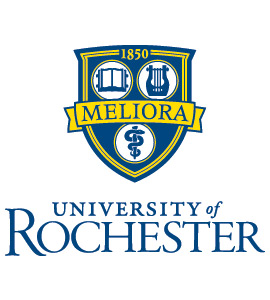Understanding the ways in which humans can decode language
The stunning ability to communicate abstract messages is a quintessential human trait that uniquely defines us in the animal kingdom. Despite incredible variance in the ways that people talk, including pronunciation, the words we choose, and the structures we produce, we are able to understand one another. Dr. Florian Jaeger, of the University of Rochester, seeks to understand the computational cognitive systems that allow the human brain to communicate information at a rate and complexity that far exceeds that of other animals. The primary goal of Dr. Jaeger and his collaborators in the the Human Language Processing (HLP) Lab, is to understand the perceptual and motor inference processes that underlie our ability to communicate robustly. For example, how do we compress the high dimensional acoustical signal that arrives at our ears sufficiently to process it further? What neural codings allow us to do so within milliseconds? This ability points to cognitive and neural systems that are tuned to the statistics of the speech signal, thereby allowing the millisecond-by-millisecond prediction and compression that facilitates efficient language understanding. His research has implications that span a vast spectrum including understanding language processing, language learning, the social perception of others, automatic speech recognition, speech synthesizers, and the fundamental basics of linguistic theory.
Research at the HLP lab begins with the development of theoretical mathematical frameworks. These models are implemented and tested in behavioral and brain imaging experiments --theory and experimentation inform each other, leading to the incremental refinement of both. A central component in this work is a focus on multidisciplinary research. By going beyond disciplinary boundaries, Dr. Jaeger's team has been able to uncover unifying explanations for a both linguistic and cognitive phenomena.
Current research includes:
- Speech Recognition: Dr. Jaeger's research informs the development of better speech recognition and generation. For example, computer scientists have used Jaeger's research to improve devices with easier to understand language output.
-
Understanding Language Development: In order to advance understanding of both normal and deviant language acquisition, development throughout childhood, and language understanding in adults, it is important to craft a more complete understanding of the perceptual and computational capacities underlying these adaptation processes. Dr. Jaeger's research on implicit learning during language processing works to understand such processes. Some of the implicit learning projects include learning how people are able to adjust or adapt to hearing accents and understanding how the perception at the lowest level will affect language processing. The development of these theories will facilitate language teaching and learning.
-
Second language acquisition: Learning new languages as an adult is hard. Non-native accents are one of the first things that we notice about others and, whether we want to or not, we tend to subconsciously make judgments about others based on their language. By educating the public about the factors that make it hard for someone to learn a language, Dr. Jaeger hopes to dispel misunderstandings. For example, in recent collaborations he and his team found that the largest predictor of how well someone is perceived to speak a language is *not* how long they have been learning it, their educational background or alike, but rather simply what language they grew up with. That is, someone who grew up speaking German will sound like a better Dutch speaker after very short exposure to Dutch, than someone who grew up speaking Mandarin Chinese will after studying Dutch for years; it's to a large part a function of how similar the two languages are. By contributing to how we learn new languages, this research also has the potential to support second language teaching.
- Training and Career Development: Typically, about 30-50% of the members of Dr. Jaeger's research team come from groups traditionally under-represented in the sciences. By supporting the career of these promising scientists, he is able to help make sure that the best researchers will conduct the next generation science, rather than those whose parents happened to be scientists.
Bio
Dr. Jaeger grew up in Germany and Greece. Early on his parents instilled the wanderlust in him, by touring through Europe in old cars that broke down in the most inopportune moments, putting them at the mercy of (typically extremely generous) strangers. In time, Jaeger discovered his interest in mathematics and science, and completed his Master in theoretical computer science, linguistics, and German literature at the Humboldt University to Berlin. He first came to the US for an internship with Bayer Inc. Charmed by Pittsburgh and the entrepreneurial attitude in the group he worked with, he decided to come back at some point to pursue his real passion, scientific research. After another brief stint in the coolest city in the world (Berlin, that's right; no offense), he returned to the US as an exchange student at the University of California, Berkeley, where he studied linguistics and neuroscience. Now completely awed by the intensity and opportunity that this type of research environment afforded, he decided to pursue a Ph.D. in theoretical linguistics at 'the other bay area school' (Stanford University). To round off his education, he spent part of his Ph.D. at Massachusetts Institute of Technology and at the University of Edinburgh in Scotland. A three-month postdoctoral researcher appointment in Psychology at the University of California, San Diego provided the final polish. Since 2007, Dr. Jaeger faces the northern storms at the University of Rochester, New York. He holds against his colleagues in Department of Brain and Cognitive Sciences that their awesomeness dragged him into this climate. Staying true to his interdisciplinary interests, he also holds appointments in Computer Science and Linguistics. As of 2014, he is the Director of the Center of Language Sciences, which --thanks to his predecessors-- has a long and successful interdisciplinary history with faculty alumni in over 50 linguistics, psychology, and cognitive science department at US universities alone. Dr. Jaeger tries to spend much of his free time traveling and discovering new cultures. His research and professorship has allowed him to travel to diverse countries including much of Europe, Brazil, New Zealand, Australia, and the Yucatan Peninsula in Mexico. Aside from traveling, he also enjoys hiking and scuba diving.
In the News
Psychology Today
Academic Minute, WAMC


